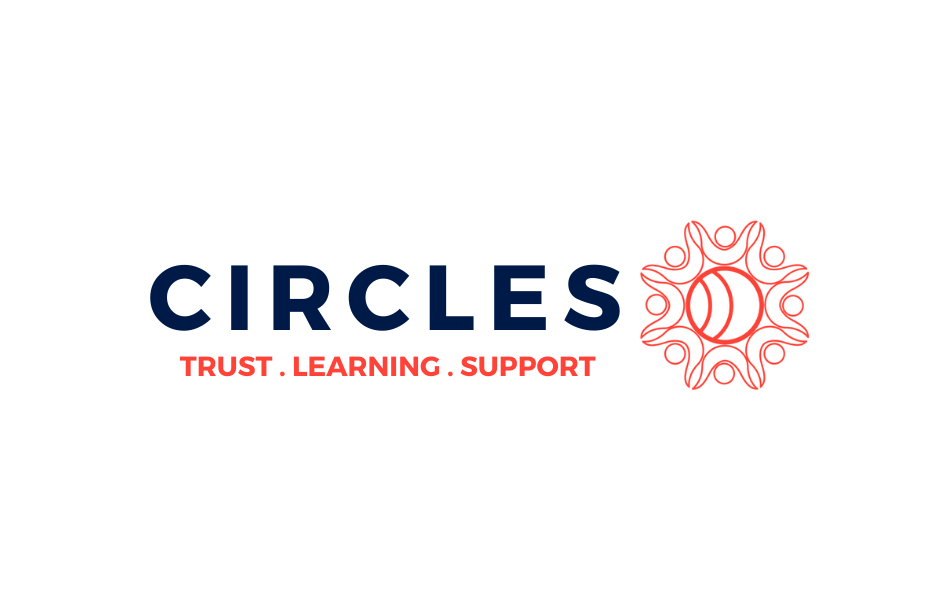You do not need to be Black to know that Black Lives Matter.
Sean Gibbons
CEO
The Communications Network
@SeanGibbons_
Yabsera Faris
Digital Strategist and Membership/Program Coordinator
The Communications Network
Tristan Mohabir
Director of Programs and Operations
The Communications Network
Carrie Clyne
Director of Events and Community
The Communications Network
Protest makes many of us uncomfortable.
That is its purpose: to communicate to an audience that has not been listening — or hearing.
Protest is deeply patriotic. It has a long American history that traces back to Williamsburg, Philadelphia, and the Boston Harbor.
It is a right of every person in this country.
The staff of The Communications Network have been inspired by the bold actions many of our colleagues, friends, leaders, and organizers have been taking — and we say: thank you.
But the chorus of voices calling from across the country is not full. And this is also true: Silence is a message.
Over the last too many days, we have been hearing this question from many colleagues—phrased different ways: Should I say something?
Is this “in our lane”?
I’m not an expert so…
I’m white, and my team isn’t diverse, so maybe I shouldn’t say anything…
Wouldn’t it be better for my Black colleague to say something?
I don’t want to say the wrong thing…
I don’t want to alienate _____ … —or— We try to be apolitical…
Is racial justice relevant to our work and audience?
If you are wondering if you should say something, be present, or take action, you are not alone.
These last few weeks, following the murder of George Floyd, the attack on Chris Cooper, the shooting of Ahmaud Arbery, and the racial bias, bigotry, and hate that brought about the deaths of Breonna Taylor, Nina Pop, Sean Reed, Tony McDade, Tamir Rice, Trayvon Martin, Freddie Gray, and too many others, this truth is plain:
White people have a responsibility to speak about and challenge racism and anti-blackness.
Foundations and nonprofits, whatever their specific missions, have a duty and responsibility to be present, speak out, and take action to challenge racism and anti-blackness.
The voices of foundations and nonprofits have power and currency.
We know being present, speaking out, or taking action can be uncomfortable.
If discomfort is the toll, it’s one we must pay. We need to support and challenge our community, field, and sector to do better, and do more.
We’ve compiled examples of foundation and nonprofit communications focused on the recent racial justice protests + why we think they’re effective + collaborative open-source resources that you are welcome to contribute to — or draw from.
We invite you to join us in thinking more deeply and communicating more clearly about how we can come together as a field to:
Acknowledge America’s history and give context.
Acknowledge anti-black racism.
Acknowledge everyday acts of racism and advance racial equity.
Acknowledge not only Black men but also Black women, Trans, Queer, and Gender non-conforming people.
Acknowledge anti-racism work within your organization.
Acknowledge structural racism and police violence.
Acknowledge systemic and institutionalized racism.
Acknowledge your own personal responsibility.
Acknowledge America’s history and give context.
Statement by Sarah Rosen Wartell, President of the Urban Institute
“We cannot put slavery behind us because its legacy surrounds us: it is mapped across our geography; it structures our schools and workplaces; it is reflected in bank accounts and in the health and living conditions that disproportionately expose so many Black Americans to COVID-19. Racism still shapes our subtle or explicit expectations of one another, is embedded in our mindsets, and influences our daily choices consciously or unconsciously.”
Acknowledges America’s history and gives context. What’s happening isn’t just about a recent eruption of police brutality. History is not repeating itself – the historical amnesia of America is reckoning with itself.
Start here: The 1619 Project
Acknowledge anti-black racism.
Statement by Richard Besser, MD, CEO of Robert Wood Johnson Foundation
“The Robert Wood Johnson Foundation stands in solidarity with those speaking out against anti-black racial violence and seeking racial justice in America. The brutal killing of George Floyd at the hands of Minneapolis police officers and the unconscionably long list of black victims who preceded him must unite us and embolden us. We echo the voices of outrage and the demands for change.”
Acknowledges anti-black racism. It’s important to be specific and accurate with your words. There is a tendency to classify all victims of racism under the label “people of color” or “minorities”. This generalist approach fails to account for the varied ways that racism has historically impacted Black people.
*Anti-blackness both voids blackness of value, while systematically marginalizing Black people and their issues. The first form of anti-blackness is overt racism. Beneath this anti-black racism is the covert structural and systemic racism which categorically predetermines the socioeconomic status of Blacks in this country. The structure is held in place by anti-black policies, institutions, and ideologies. The second form of anti-blackness is the unethical disregard for anti-black institutions and policies. This disregard is the product of class, race, and/or gender privilege certain individuals experience due to anti-black institutions and policies. This form of anti-blackness is protected by the first form of overt racism.
Start here: Anti-Black Bias Toolkit
Acknowledge everyday acts of racism and advance racial equity.
Statement by the ProInspire Team (Part 1, Part 2)
“We call on you to move beyond a statement and to do the work of advancing racial equity and justice in your organization. We started our racial equity journey five years ago and continue to grapple with how to live our values through everyday acts that are explicitly anti-racist.”
Acknowledges everyday acts of racism and encourages you to advance racial equity. Your organization should be working towards racial equity. Racial equity emphasizes the structures, roles, processes, and practices that negatively impact non-white people inside and outside of organizations, and outlining specific tactics to mitigate them as part of a process to drive race equity within an organization’s culture.
Start here: Awake to Woke to Work: Building a Race Equity Culture
Acknowledge not only Black men but also Black women, Trans, Queer, and Gender non-conforming people.
Statement by Nick Donohue, CEO and President of Nellie Mae Education Foundation President
“At the time we’ve reached the unthinkable milestone of 100,000 deaths as a result of COVID-19, we’ve also witnessed the murders of too many Black Americans at the hands of violence and white supremacy: George Floyd, Ahmaud Arbery, Nina Pop, Sean Reed, Tony McDade, Breonna Taylor. These are merely a few of the names of Black individuals that have died at the hands of racism — there are unfortunately many more that have gone unnoticed and unheard of by the public.”
Acknowledges not only Black men but also Black women, Trans, Queer and Gender non-conforming people. To proclaim Black lives matter is to proclaim that the lives of ALL Black people matter—including the lives of Black women, Trans, Queer, and Gender non-conforming people. It’s important to understand that Black Trans, Gender non-conforming and Queer people disproportionately facing state-sanctioned violence
Start here: National LGBTQ Task Force Report on transgender and gender non-conforming people in the United States.
Acknowledge anti-racism work within your organization.
Statement by Nick Donohue, CEO and President of Nellie Mae Education Foundation President
“As an organization, we will continue to do our own learning around white supremacy, our complicity in upholding this system as a philanthropic entity, and we will take action to dismantle it. As a white leader, I am committed to holding myself — and other white people — to do better. White people must step up and take action, and hold each other accountable. It is our responsibility to examine how we are complicit in the spreading of this virus of racism, and how we benefit from it every day. Silence is complicity. This moment calls on us to reflect on the type of society we want to build and take action. Our future depends on it.”
Acknowledges anti-racism work within the organization. Being non-racist is not enough. Orgainzations need to work towards being anti-racist. Racism is perpetuated through everyday acts in nonprofit and philanthropic organizations that aim to do good, without looking inward at ourselves and shifting how we address the root causes for the problems we care so much about.
Start here: Moving Your Organization to be Anti-Racist Webinar
Acknowledge structural racism and police violence.
Statement by Dan Porterfield, President and CEO of Aspen Institute
“The Aspen Institute is committed to helping to build a free, just, and equitable society. Now more than ever, this calling requires us to focus on sustainable solutions to structural racism, police violence, and inequitable economic, health care, and education systems. It also requires all institutions, including ours, to ask what more we can and should do to live our commitments to diversity, equity, and inclusion.”
Acknowledges structural racism and police violence. You cannot challenge structural racism without understanding the history of racist policing in the United States.
Start here: Violence in Minneapolis is rooted in the history of racist policing in America
Acknowledge systemic and institutionalized racism.
“Our hearts ache today because of the senseless killing of Mr. George Floyd. Our prayers for peace, justice and hope go out to his family, his friends, and all the people around the world who have engaged in the nonviolent demand for an end to the systemic institutionalized racism that exists across this country.”
Acknowledges systemic and institutionalized racism. George Floyd’s murder was not an isolated, tragic incident perpetrated by a few bad individuals, but part of a broader pattern of systemic and institutionalized racism. Institutional racism is what connects George Floyd and Breonna Taylor with Ahmaud Arbery, Philando Castile, Sandra Bland, Eric Garner, Emmett Till, and the thousands of other people who have been killed because they were Black in America.
Start here: “What Is Systemic Racism?”
Acknowledge your own personal responsibility.
Statement by Sarah Rosen Wartell, President of the Urban Institute
“The phrase “we must do more” lacks specificity, usually indicating we do not know what more to do. I am embarrassed to say I wrote it myself, last week in a note to colleagues. And while I do not have the answers, I understand that as this institution’s current leader, and as a white woman in America, I am responsible for doing the work. I cannot and do not expect Black Americans or Black colleagues to carry the burden or draft the battle plan. I must listen to my Black colleagues and to every person who faces the injustices of racism, discrimination, or dehumanization. But I cannot devolve responsibility. It is my job, and the job of white leaders everywhere, to figure out what more we can do from our positions, and do it.”
Acknowledges personal responsibility. You should not expect your Black colleagues and colleagues of color to be the voice for equity and justice, to teach, or to even engage in these conversations right now. White people need to do their learning and to work with each other to change the systems that lead to these injustices.
Start here: Anti racist resource guide
Narratives run deep and we invite you to explore what you might not realize you’re saying.
“I support protesting but looting is too far.” This statement justifies the use of force and furthers anti-Blackness in our communities. You are valuing property over Black lives.
Understanding looting:
“It’s just a few bad apples.” What happened to George Floyd was not the result of bad apples; it was the predictable consequence of a racist system that has treated Black people as the enemy from the beginning.
Understanding the “few bad apples” argument:
Network Resources:
Crowdsourcing anti-racism resources, tools, and guidance
Follow us on Twitter for additional resources on how your organization can take steps to center racial equity + highlights from Network members that are using digital comms to talk about racial equity: Meyer Memorial Trust
The Racism Issue of The Network’s Change Agent journal, made in partnership with Michele Norris
Connect with your ComNetworkLOCAL group to tap into a community leaders where you live
ComNet Webinars
ComNet Keynotes
Watch, listen to, or read Michele Norris’s keynote at ComNet17 on race
Listen to, or read Trabian Shorters keynote at ComNet19 on asset framing
Watch, listen to, or read Charles Blow’s keynote at ComNet16 on racism in America
Watch, listen to, or read Dr. Clarence B. Jones’s keynote at ComNet15 on race and risk
Explore the findings of Divided by Design from the E Pluribus Unum project
Review Anguish & Action — a thoughtful guide to getting informed, taking action, and staying engaged from The Obama Foundation



